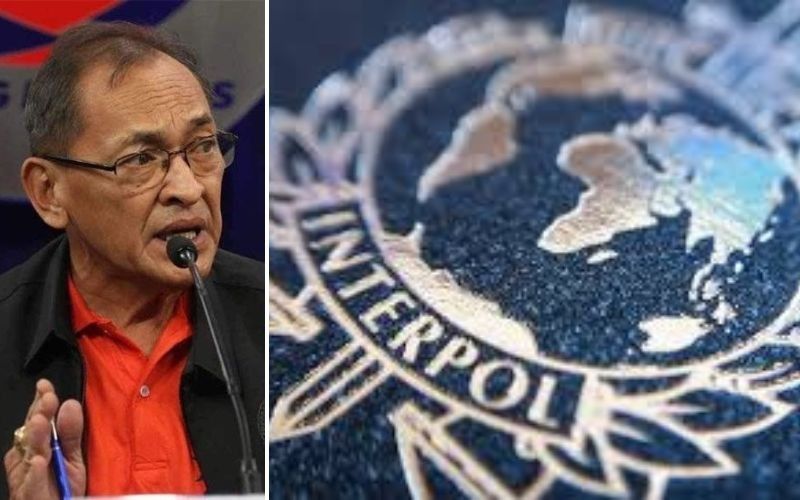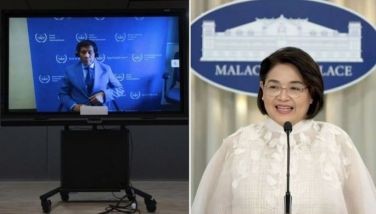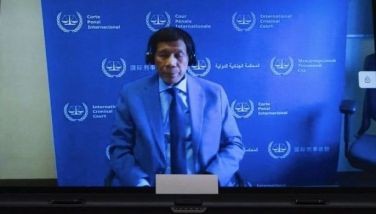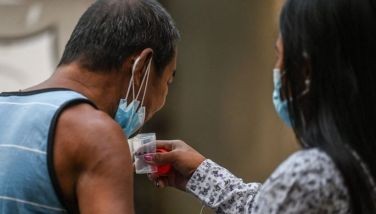Interpol assistance eyed for arrest of vloggers spreading disinfo

MANILA, Philippines — National Bureau of Investigation Director Jaime Santiago is open to the possibility of tapping the International Criminal Police Organization (Interpol) to go after Filipino content creators abroad who are accused of spreading disinformation.
Amid the NBI's ongoing investigation into vloggers accused of spreading spurious content, Santiago told reporters on Monday, March 24, that seeking Interpol's assistance to extradite erring Filipino vloggers based overseas would be a straightforward process.
"We will just write to Interpol (to) help us, bring them back here to us," Santiago told reporters in mixed English and Filipino.
The Commission on Human Rights and other rights advocates recognize the limitations of free speech but also deem arrests for spreading false information as a potential rights violation. The CHR says such arrests may be a form of content-based restraint that violates the constitutional protection of free speech.
Potential rights violation. Carlos Conde, senior Philippine researcher at Human Rights Watch, similarly said the government's approach to curbing disinformation raises concerns over potential breaches of individuals' right to freedom of expression.
"The Philippine government is walking a very fine line here," Conde told Philstar.com.
"While Filipinos here or abroad have to face the legal consequences of their actions or utterances, this remains concerning in the context of free speech and freedom of expression, especially in such a volatile political climate," Conde added.
Conde urged authorities to exercise restraint in their campaign against alleged disinformation.
"The government needs to exercise utmost tolerance here and not to sacrifice free speech just because they don't like what they're hearing from these Filipinos," Conde said, adding that the government should only act "if these Filipinos commit something clearly illegal" while still exercising "maximum tolerance" for free speech.
He also cautioned against "using these OFWs' pro-Duterte actions against them, for example in jeopardizing their employment or status in these foreign countries."
The CHR has also expressed concern over the recent arrest of an online content creator for libel. In a statement on Monday, the rights body called on law enforcement officers and agencies to "remain circumspect in enforcing criminal laws that have a direct impact on the enjoyment of the freedom of expression by every individual."
"While there are limitations to freedom of expression, government-based sanctions that look into the truth or falsity of a statement are a form of content-based restraint that may be considered a prior restraint on free speech prohibited by Article III, Section 4 of the 1987 Constitution," the CHR said.
Crackdown on disinformation. Santiago's comments came a day after he revealed that the NBI has identified and is currently monitoring around 20 vloggers suspected of spreading false information.
The NBI director on Monday noted jurisdictional challenges when pursuing individuals in countries with different legal frameworks, particularly the United States where libel is not criminalized. "In the US, for example, libel isn't a crime — it's only a civil case. But here, libel is a criminal case," Santiago said.
Santiago said the NBI is exploring alternative legal approaches, including potential charges of inciting to sedition and tax evasion. "We're looking at all angles. For example, they could be charged with inciting to sedition. That's a crime in the US and here in the Philippines," Santiago said in mixed English and Filipino. "Remember, they're reaching audiences here in the Philippines — are they paying taxes?"
When questioned about freedom of expression concerns, Santiago insisted that the NBI respects constitutional rights but must act when laws are broken. "Comments based on their perspectives and beliefs are fine. But when they cross the line into inciting sedition or committing libel, we need to stop that," he said.
The increased scrutiny of online content creators under President Ferdinand Marcos Jr. comes amid heightened tensions between his family and the Dutertes, whose patriarch, former President Rodrigo Duterte, is currently in the custody of the International Criminal Court.
Tsek.ph, a fact-checking coalition, has monitored a surge in disinformation following the former president's arrest.
RELATED: Fake rallies, false quotes: Duterte's arrest triggers wave of disinformation
Marcos himself and his former running mate Vice President Sara Duterte benefited significantly from online disinformation during the 2022 electoral campaign. Several studies, including an analysis by Tsek.ph, documented how false information in favor of Marcos and Duterte dominated social media platforms during this period.
- Latest
- Trending

































